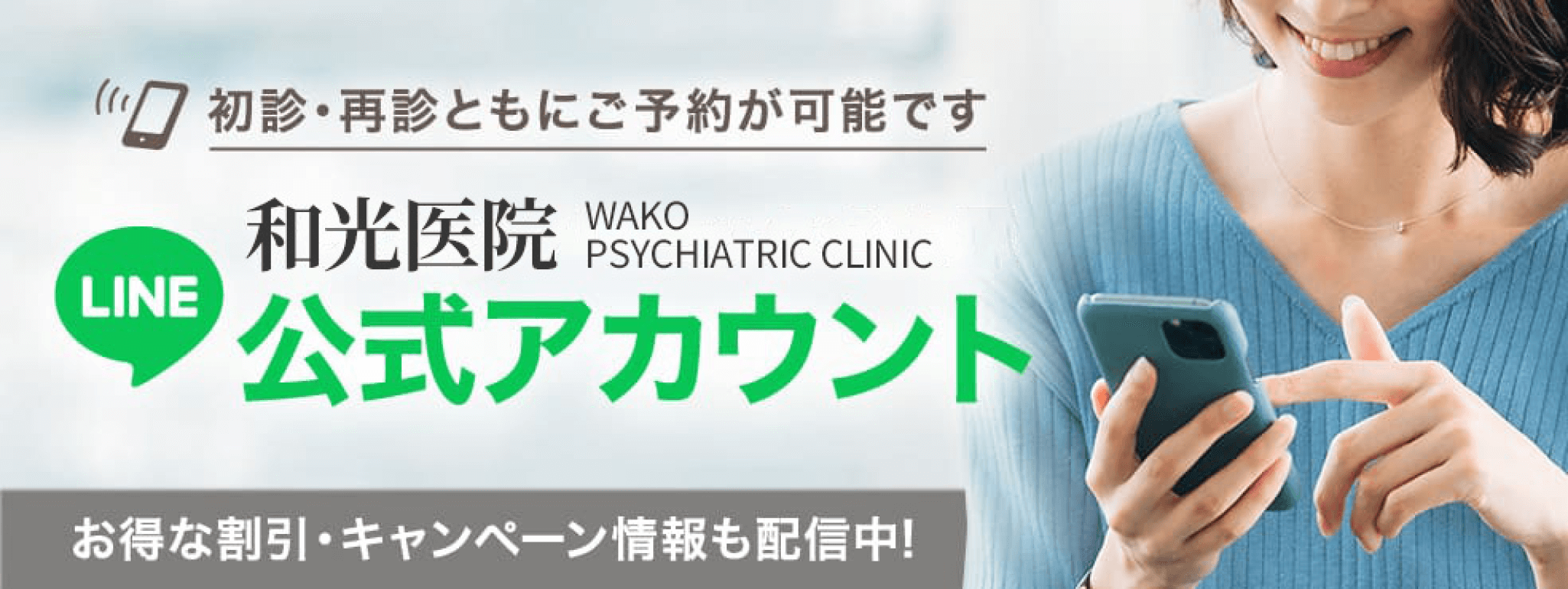ブログ
児童精神科領域におけるTMS治療の選択肢について、名古屋の児童精神科医が解説
児童精神科領域におけるTMS治療の選択肢について、名古屋の児童精神科医が解説
こんにちは、名古屋市千種区 児童精神科専門クリニック、医療法人永朋会 和光医院、加藤晃司です。
今回は、児童精神科領域におけるTMS治療の選択肢について
当院ではTMS治療を行うことができます。
TMS治療がはじまって、かなり早い段階だか導入してので、多くの人に治療してきました。
ーーーーーーーーーーーーーーーーーーーーーーーーーーー
TMS治療(経頭蓋磁気刺激治療)は、特定の脳の部位に磁気パルスを送ることで神経細胞の活動を刺激し、さまざまな精神疾患や神経疾患の治療に用いられる非侵襲的な手法です。この治療は、うつ病や強迫性障害(OCD)、注意欠陥・多動性障害(ADHD)、特定のタイプの頭痛など、薬物療法や他の治療法に反応しない患者に対して特に有効であると考えられています。
(1)TMS治療の原理
TMS治療は、コイルを患者の頭皮上に配置し、短い磁気パルスを脳に送ることにより行われます。これらの磁気パルスは、脳の表面近くの神経細胞の活動を直接刺激することができます。治療の目的は、脳の特定の領域の活動を調節し、症状の改善を図ることにあります。
(2)TMS治療の効果
うつ病: TMS治療は、特に抗うつ薬に反応しない重度のうつ病患者に対して効果を示すことがあります。いくつかの研究では、TMS治療がうつ病の症状を軽減させることが報告されています。
OCD(強迫性障害): OCDの治療においてもTMSが有効であるとの報告があります。特定の脳領域を標的とすることで、強迫思考や強迫行為の減少が見られることがあります。
その他の疾患: ADHDや特定のタイプの頭痛、さらには中絶症候群やうつ状態のある統合失調症患者に対しても、TMS治療が試みられています。
(3)TMS治療のプロセス
TMS治療は通常、外来患者ベースで行われ、1回のセッションは数分から数十分程度です。治療の全期間は数週間にわたり、週に数回のセッションが行われることが一般的です。治療は非侵襲的であり、麻酔は必要ありません。患者は治療中に目覚めた状態であり、治療後には通常の日常活動に戻ることができます。
(4)副作用
TMS治療の副作用は一般的に軽度で、治療部位の頭痛や頭皮の不快感、治療中の耳鳴りなどが報告されています。これらの副作用は通常、時間とともに減少または消失します。重大な副作用は稀ですが、発作のリスクが非常に低いながらも存在するため、適切な患者選定とモニタリングが重要です。
ーーーーーーーーーーーーーーーーーーーーーーーーーーー
児童精神科では、なんらかの症状があった時に、内服の副作用がでて使えない、内服はなるべく使いたくない、ということが成人外来に比べて多いかなと思います。
TMS治療がいい、といよりは、治療の選択肢は多い方がいいと、思っています。
精神科の症状は、基本複合的です。一個の原因でなりたっていることはほとんどないでしょう。
なんらかの診断がついたとしても、その診断の中に、今起きている問題のすべてを押し込むことは難しいでしょう。
それにもともと多くの診断が、スペクトラムとして捉えているところがあります。
診断基準としては、どこかで線をひいいて、診断がつく、つかない、とはしますが、多くの子が連続性の中にいます。常に症状は揺れ動いていますし、特定の診断のみに収まることの方が少ないです。
脳の活動も、調子が悪ければ基本的には低下してきます。
脳細胞の活性化は、何かをきっかけにしてやれた方がいい。それがTMSかもしれません。
内服もなんらかの神経伝達物質に作用するものが多いですが、それは一つのきっかけに過ぎないと思います。
脳は常に、もとの通常だった状態に戻ろうとする力が働いています。
子どもなら、それは大人よりも強いです。
進行性の疾患でない限り、元に戻ろうとする力を強めてあげればいいと思います。
カウンセリング、作業療法、栄養療法、どんな治療でもきっかけになるなら、使いこなせばいいと思います。
TMS治療の児童思春期領域での臨床データは少しずつですが、世界で発表されてきています。
今後日本からも発表されていくかもしれません。
すべての治療は使い方次第です。
少しでも早く良くなるために、TMS治療というものがあることも、知っておいてください。
当院ホームページはこちらより
ご予約は公式ラインから可能です。
当院インスタグラムはこちら
https://www.instagram.com/wako_iin/
子どものためのメンタルクリニック
医療法人永朋会 和光医院
児童精神科・精神科・心療内科
〒464-0092 愛知県名古屋市千種区茶屋が坂1丁目12番2号
電話 : 052-712-1777
地下鉄名城線「茶屋ヶ坂」駅 1番出口より徒歩3分
地下鉄名城線「砂田橋」駅 1番出口より徒歩10分
TMS Treatment Options in the Field of Child Psychiatry: Explanation by a Child Psychiatrist from Nagoya
Hello, I am Koji Kato, a child psychiatrist at the Wako Clinic, a specialized clinic for child psychiatry in Chikusa Ward, Nagoya City, under the Medical Corporation Eihokai.
Today, I will explain the options for TMS treatment in the field of child psychiatry.
At our clinic, we offer TMS (Transcranial Magnetic Stimulation) treatment. Since introducing it quite early, we have treated many patients with this method.
Transcranial Magnetic Stimulation (TMS) Treatment is a non-invasive technique that involves sending magnetic pulses to specific areas of the brain to stimulate neural activity. This treatment is used for various mental and neurological disorders, particularly for patients who do not respond to medication or other treatments. TMS is considered particularly effective for conditions such as depression, obsessive-compulsive disorder (OCD), attention deficit hyperactivity disorder (ADHD), and certain types of headaches.
- Principles of TMS Treatment
TMS treatment involves placing a coil on the patient’s scalp and delivering short magnetic pulses to the brain. These magnetic pulses can directly stimulate the activity of neurons near the brain’s surface. The goal of the treatment is to regulate the activity of specific brain regions and improve symptoms.
- Effectiveness of TMS Treatment
Depression: TMS treatment can be effective for severe depression patients who do not respond to antidepressants. Several studies have reported that TMS treatment reduces depressive symptoms.
OCD (Obsessive-Compulsive Disorder): There are reports of TMS being effective in treating OCD. Targeting specific brain regions can lead to a reduction in obsessive thoughts and compulsive behaviors.
Other Disorders: TMS treatment has also been attempted for ADHD, certain types of headaches, and depressive symptoms in patients with schizophrenia.
- TMS Treatment Process
TMS treatment is typically conducted on an outpatient basis, with each session lasting from a few minutes to several tens of minutes. The entire treatment period spans several weeks, with sessions held several times a week. The treatment is non-invasive, and no anesthesia is required. Patients remain awake during the treatment and can usually resume their daily activities afterward.
- Side Effects
The side effects of TMS treatment are generally mild, including headaches at the treatment site, scalp discomfort, and tinnitus during treatment. These side effects typically decrease or disappear over time. Severe side effects are rare, but there is a very low risk of seizures, so appropriate patient selection and monitoring are essential.
In child psychiatry, it is often the case that medications cannot be used due to side effects or are not preferable to use as much as in adult clinics.
It’s not that TMS treatment is always the best option, but having multiple treatment options is important.
Psychiatric symptoms are generally complex and rarely result from a single cause.
Even if a diagnosis is made, it is difficult to encompass all current problems within that diagnosis.
Moreover, many diagnoses are seen as spectra.
While diagnostic criteria draw a line between having or not having a diagnosis, many children exist on a continuum. Symptoms are constantly fluctuating, and it is rare for them to fit neatly into a single diagnosis.
When brain activity declines, it generally decreases overall.
Activating brain cells can be beneficial, and TMS might be the trigger for that.
Many medications also act on certain neurotransmitters, but that is just one trigger.
The brain constantly tries to return to its normal state.
For children, this tendency is even stronger than in adults.
Unless the condition is progressive, it is beneficial to strengthen the brain’s ability to return to its normal state.
Counseling, occupational therapy, nutritional therapy—any treatment that can serve as a trigger should be utilized effectively.
Clinical data on TMS treatment in child and adolescent psychiatry is gradually being published worldwide. We may see more publications from Japan in the future.
All treatments depend on how they are used.
Please be aware that TMS treatment is an option for improving conditions as quickly as possible.
受診される方へ
初めて受診される方
当院は予約制をとっておりますが、初診の場合は若干のお時間をいただくこととなり、お待ちいただくことがあります。スムーズにご案内する為に、WEB問診のご利用をおすすめいたします。
WEB問診はこちら >
初診予約は電話にてお願いします。
再診される方
お電話もしくは予約システム(チェック・オン)から予約を取ることもできます。予約の変更や取り消しをご希望の場合には、診療時間内に受付にお電話いただくか、予約システムから変更・取り消しを行ってください。
パソコン・携帯から簡単にご予約できます。
和光医院 診療時間のご案内

【診療時間】
午前 9:00〜13:00
午後 15:00〜18:00
土曜 9:00〜14:00
【休診日】 日・祝日
患者様へのご案内
- 明細書について:当院では、療養費規則に基づき明細書の発行を無料で行っています。
- 一般名による処方について:後発医薬品が存在する場合は、商品名ではなく一般名(有効成分名)で処方することがあります。
- 医療情報の活用について:当院では、安心な医療を提供する為、オンライン資格確認や電子処方箋データ等の情報を活用して診療を行っています。


